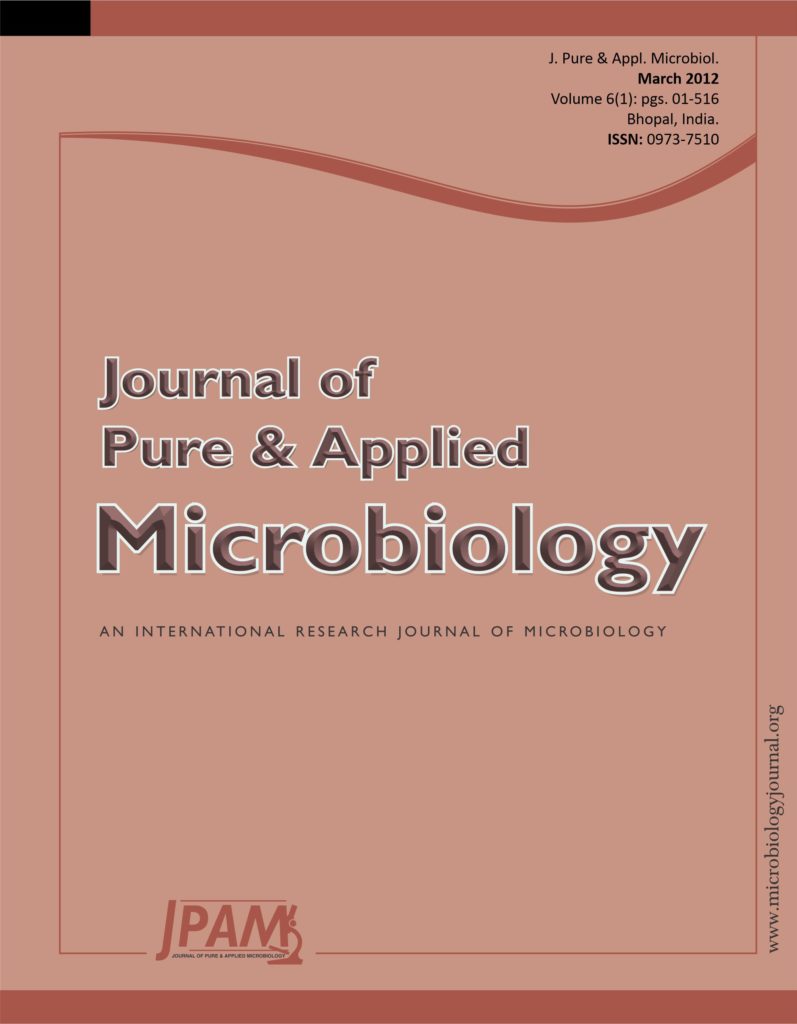An extracellular tannase (E.C. 3.1.1.20) producing fungal strain was isolated from soil and identified as Aspergillus sp MIK23. Out of various plant extracts, Terminalia chebula powder (TCP) in the optimized medium enhanced enzyme production. Maximum yield of tannase (3 IU ml-1) was obtained with glucose (10 g/L), urea (2 g/L), and yeast extract (2.5 g/L) when inoculated with 10% inoculum in 48 h. An initial medium at pH 6.0 and a cultivation temperature of 37°C was found to be optimum for enzyme production. Metal ions Mg2+, Zn2+, Ca2+, Cu2+ and Cd2+ did not improve enzyme activity, whereas, Ca2+, Fe2+ and Hg2+ repressed enzyme activity. The enzyme was purified using ammonium sulfate precipitation followed by Q-sepharose ion-exchange chromatography. The enzyme was purified to 42-fold with an overall recovery of 20. The pH and temperature optima of the purified tannase were found to be 7.0 and 37°C, respectively.
Plant extracts, Tannins, Optimization, Terminalia chebula
© The Author(s) 2012. Open Access. This article is distributed under the terms of the Creative Commons Attribution 4.0 International License which permits unrestricted use, sharing, distribution, and reproduction in any medium, provided you give appropriate credit to the original author(s) and the source, provide a link to the Creative Commons license, and indicate if changes were made.


